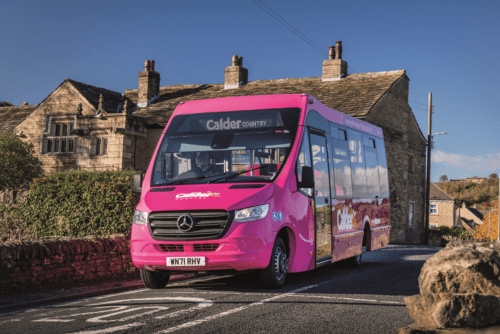
Kevin Carr reports from the launch of the CPT’s report on achieving zero-emission rural mobility, which was held at Westminster on 28 February
The Confederation of Passenger Transport (CPT) set up a taskforce last summer to look at zero-emission bus services in rural areas. Since then, the Rural Zero Emission Bus Taskforce (RZEBT), a panel of experts made up from the bus operators, manufacturers, suppliers and both local and national government, has been looking what the problems are and what the solutions may be. So, when I heard about their new report, I headed to Westminster to find out more.
The event in the Houses of Parliament was to launch the Taskforce’s ‘Delivering Zero Emission Bus Services to Rural Areas’ – a plan for the future. It seemed sensible to me that the report was being launched here, at the heart of decision making, to an audience composed of industry people and crucially Government officials and MPs – the people who make the decisions on our behalf to shape the future. The right location for the job, even if those rural communities we were thinking and talking about felt a million miles away.
Rural bus services are vital to the communities in which they operate; most people recognise that. They are vital socially, economically, and crucially environmentally. ‘Delivering Zero Emission Bus Services to Rural Areas’ sounds like an uphill battle – and it is. The challenges in decarbonising rural transport are enormous and the taskforce’s new report doesn’t shy away from any of the problems. Long routes, hilly terrain and low financial yield are among the many obstacles. But it’s a fight that, it appears, the bus industry is up for – the prize meaning greener buses for our vast rural areas.
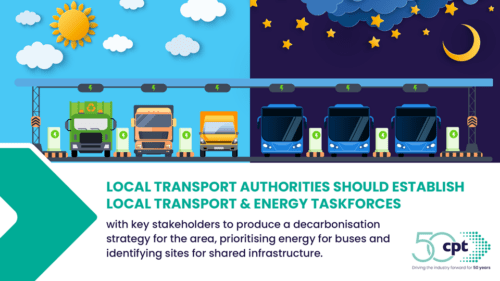 War on carbon
War on carbon
RZEBT is chaired by Jeff Counsell, Electric Vehicle Director of Warrington’s Own Buses. The taskforce was created to identify the specific challenges that rural bus operators face on the road to net zero. Facing pressures on energy, distance, location, and cost to name a few, it sounds like a war on carbon. Rather fitting then that we were located in the Churchill Room of the House of Commons, of course named after wartime Prime Minister Winston Churchill, to hear all about what the panel of experts think the way forward should be.
[wlm_nonmember][…]By subscribing you will benefit from:
- Operator & Supplier Profiles
- Face-to-Face Interviews
- Lastest News
- Test Drives and Reviews
- Legal Updates
- Route Focus
- Industry Insider Opinions
- Passenger Perspective
- Vehicle Launches
- and much more!
Our host was Harrogate & Knaresborough MP Andrew Jones. He served twice previously as a Minister at the Department for Transport and continues to champion buses. Andrew knows only too well what zero-emission buses mean to people as he spoke fondly of the electric buses that operate around his constituency.
He said: “Everyone likes zero-emission buses; drivers like them and passengers like them – they like the smoother ride but also what it means to be zero-emission.”
The MP talked about the importance of society and government being serious about decarbonisation, so important for the future of our planet and for air quality in our localities, he explained.
He went on to talk about some of challenges that operators faced in getting used to running a different kind of bus, re-training maintenance staff being one. However, “progress in training means decarbonisation,” he said.
Andrew also spoke of a recent visit by the Prime Minister to his local bus depot in Starbeck, the home of the Harrogate Bus Company, to see the progress with local electric buses for himself and reaffirming that the Government is behind the bus industry on the path to net-zero.
The 22-page report talks in some detail about the challenges on the road ahead. Stephenson’s of Essex Managing Director Bill Hiron said that while Euro VI was incredibly clean, the bus industry was committed to going as far as it can to bring about zero-emissions. Highlighting some of the obstacles, he spoke about the range of battery vehicles being on average 140 miles, which is a huge shortfall from the 240 to 400 miles that rural services require in a day.
He went on to talk about rural services being predominantly tendered and the difficulties presented in maintaining low costs, with most rural services experiencing a lower turnover of passengers, most of whom are concessionary pass holders. A double-edged sword, perhaps, standing in the way of any progress.
Bill also pointed to another problem. “Many rural bus services are operated by small and medium sized enterprises,” he said, alluding to the possibility that these entities may well not have the capacity or resources to deliver solutions alone.
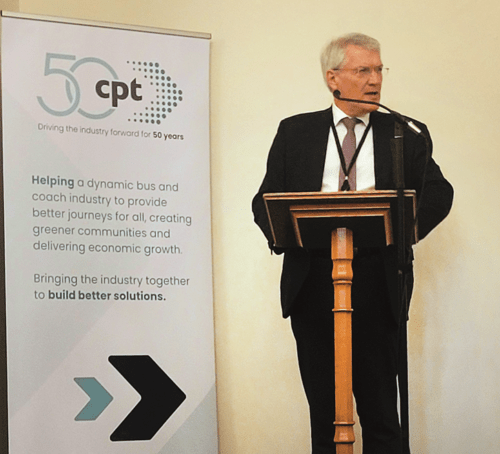
Hydrogen?
So, is hydrogen the answer? The experts think not. The view of the RZEBT is that whilst hydrogen vehicles deliver a greater range, it is expensive, and supply is limited and uncertain. The report also states that green hydrogen is prone to shortage and that competition for supply from LGVs, coaches, maritime and aviation over the next decade will ultimately rule itself out as a solution for rural buses. However, the taskforce has urged the Government to bring stability to the hydrogen market and keeps an open mind. Indeed, the report encourages the Government to give certainty over the supply of green hydrogen to ensure capacity is assured for buses at shared sites. It also asks the Health & Safety Executive look at ways of speeding up approvals for developing hydrogen refuelling sites.
If the solution is battery powered buses, then we are still only part way there to understanding the full extent to the hurdles that we need to overcome.
A longer-term approach is needed to address the issues according to Rebecca Kite, CPT’s Policy Manager. She said: “there needs to be a wider support package, which moves away from the stop/start approach and delivers certainty to the whole supply chain and brings alignment between zero-emission bus deployment and infrastructure installation.
“Zero emission buses also require supporting infrastructure – space at rural depots is often limited,” she added.
Going further, Rebecca said that rural locations brought practical complications. “Grid capacity at rural destinations tends to be limited. With multiple stakeholders needing to decarbonise, there is limited resource and space available,” she said.
Another area of work for the Taskforce is repowering – the conversion of an existing diesel-powered bus to electric power. Rebecca explained: “During our discussions, repowering was identified as a potential, more affordable option for some operators and we will work with Kleanbus to determine the optimal age to repower a diesel bus. We will look to do some modelling of the bus fleet to see if we can determine when we will have a stable second-hand market.”
She also talked about the CPT’s support for the work that the Faraday Institute and Advance Propulsion Centre were doing to further increase battery range and the development of longer-range batteries for buses.
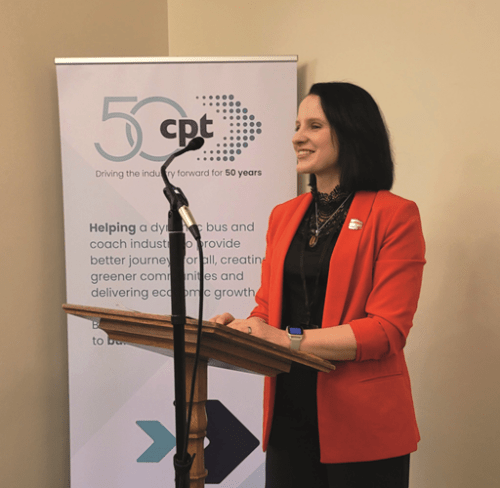
Collaboration
With shared problems around infrastructure, grid capacity and planning regulations the RZEBT has called upon local transport authorities to establish local transport energy taskforces to help expedite planning applications for infrastructure and develop a decarbonising strategy to prioritise energy for buses and identify shared infrastructure sites. RZEBT says that they would bring about a strategy that delivers environmental benefits to areas by facilitating shared resource between bus, coach, local authority, and education vehicles. And could opportunities emerge for collaboration private enterprise? One might ask.
One example of shared infrastructure and collaboration is at First’s Caledonia depot in Glasgow, the UKs largest electric vehicle charging hub with over 150 rapid charging points. First charges its buses overnight, leaving the charging points available during the day. It has established an arrangement with both DPD and Police Scotland in allowing them to fast charge their vehicles in 30 to 40 minutes, purchasing only the energy they use. An interesting model that the world will want to take note of.
Depot limitations in terms of ownership and space feature as problems in the report. Many bus depots are leased which may complicate any installation of infrastructure. And with electric buses needing around 25% more room, this could be a prohibitive factor for a neatly parked up set of buses in a limited amount of space.
Preliminary hurdles
There are also preliminary barriers that need to be jumped over it seems. Rural areas have limited electricity supply, so operators must apply to their Distribution Network Operators (DNOs) for an increase in electricity received. It is apparent that this is often inconsistent, time consuming and complex. DNOs are only valid for a short period of time and that doesn’t match up in a timeframe with getting planning permission for infrastructure, which can be around 12 to 18 months.
This was something that Shadow Buses Minister Simon Lightwood MP was keen to address. “We know the huge increase in both clean power generation and clean industry – including clean transport – will require four times as much grid infrastructure to be built in the next seven years as has been built in the last 30,” he said.
He went on to say: “Britain’s grid infrastructure has now become the single biggest obstacle to both deploying cheap, clean power generation and electrifying industries across the country, including coach and bus.”
The Shadow Minister said that his party “has commissioned an independent infrastructure review, which will be looking into what Labour needs to do to transform the planning system.”
He talked about ‘rewiring Britain’ with plans to break down barriers ‘to facilitate the largest upgrade to our national transmission infrastructure in a generation.’
“For rural operators who need streamlined access to the grid – either for their own depots, or through innovative partnerships on shared access sites – our strategic approach will deliver capacity to where critical investment in transport decarbonisation is needed most,” he said.
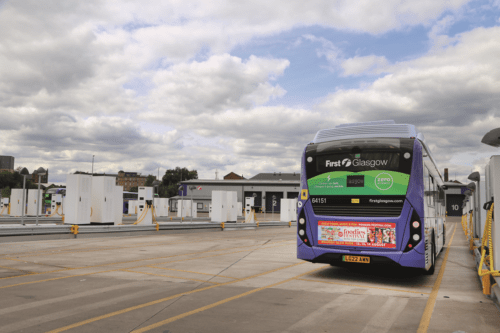
Not cheap
Getting our systems, functions, and processes in the right place with adequate equipment and infrastructure will not come cheap. The financial challenges on the path to rural net-zero are gigantic. The average cost for a medium sized electric bus is quoted at over half a million pounds each, with its hydrogen equivalent at around £430k. To say it straight – rural bus services just cannot afford this. As Bill Hiron pointed out earlier, most rural bus services are run on a low-cost tender with the local transport authorities and very little on bus revenue to play with. The low-cost aspect often means that cheaper second-hand buses are deployed on these routes either through cascading or lower purchase or lease cost. The report also highlights that those shorter-term contracts of three years or so have often prevented operators from thinking about long term investment, which the report says would need to be extended to 15 years. Local authorities can’t do this, it says. Though if nothing is done, it may be easy to say that our greenest landscapes are left with the oldest and most polluting buses – perhaps something that the public might have a problem with and for our politicians to think long and hard about.
RZEBT has said the CPT can help local authorities understand when second hand or cascaded zero-emission buses will appear on rural routes in order to plan for the long term and map out their future. It has also suggested a leased vehicle option where the local transport authority owns the vehicles and leases them to the operator, with the operator paying running and maintenance costs. The taskforce said it welcomed ZEBRA funding, but longer-term funding arrangements were needed to instil confidence and encourage investment.
The taskforce has also called on the government to commit to a five-year, £1 billion investment programme for zero-emission buses in England whilst asking the Scottish Government to commit to continuing its zero-emission programme ScotZEB. It also asked the Welsh Government to commit to a long-term strategy for fleet and infrastructure to support decarbonisation.
Challenges
So, the longer routes, the hillier terrains, the low-cost base, all put some hefty blockades in the way of zero-emission buses in our rural parts. The only route to a solution, it appears, is collaboration.
So says taskforce Chair Jeff Counsell.
“The Taskforce identified the most significant challenges facing these services are the cost of the zero-emission buses, which are substantially higher than diesel, infrastructure challenges due to limited space and resources available in rural areas and the insufficient ranges currently delivered by existing zero emission technologies,” he said.

He added “I have been particularly impressed with the level of engagement from both bus operators as well as national and local government representatives and experts from electricity, hydrogen and zero-emission technology providers. It is through collaborations such as this that we will ensure all sectors can transition sustainably to zero-emission solutions. The Taskforce identified a key part of this journey will be establishing local transport collaborations that bring together local stakeholders to identify available resources and unlock solutions that deliver environmental benefits for the area.”
And one will wonder to what greater extent will these collaborations and new partnerships will benefit from working together and sharing resources and, indeed, how long it will take wider private enterprises to latch on and engage.
Could this be a trigger for a new culture? A fresh and radical new way that businesses and local authorities go about their work, through more co-operation and collaboration. And the mightily sensible idea of sharing of expensive resources beyond zero-emission infrastructure?
The 22-page report from the 22 expert members of the Taskforce certainly gives us plenty to think about. Processes in getting enough of an energy supply and planning permission have got to work better and more quickly to even get a project to lift-off, it seems; the politicians are telling us that they want this too. The collaborations must be in place across the board with willing partners in all areas and sectors. This is crucial, we’re told. And equally crucial is funding and a long-term plan, the experts tell us.
It appears that the bus industry is serious about delivery, both realistic of the serious challenges that are ahead and equally determined to clear every hurdle in the way. But the Taskforce cannot do it alone. They will need every commitment from Government, local and national, to be met, positive and constructive engagement between all partners to become a reality and critically, a huge amount of investment provided by the Government.
But every good project needs to start with a good plan. It looks like the experienced panel of experts, that have come together in the Taskforce, have delivered an honest assessment of where things stand. But we need to be honest about the significant challenges to overcome. Lots of reform, lots of working together and lots and lots of money. It’s a big job. All the players in this game will need to stand up and be counted, there is no doubting that.
Like a rural bus route itself, the road ahead is long, the terrain is challenging, but the end destination may be well worth the journey.
[/wlm_ismember]

